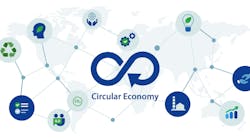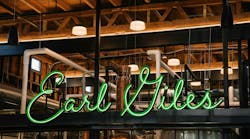The US Court of Appeals for the Federal Circuit in Washington DC overturned the earlier decision of the District Court in Cookeville, Tennessee, and ruled in favor of Fallon in its appeal of a patent infringement suit brought against Fallon by iLight Technologies. The Court of Appeals vacated both the monetary judgment and the injunction that had been entered against Fallon by the District Court – see details of the Court of Appeals' judgment.
Originally, iLight sued Fallon for infringement of claims 8 and 25 of US Patent no. 6,592,238; claims 1 and 8 of US Patent no. 6,953,262; and claims 1, 5, and 8 of US Patent no. 7,188,970 (see News).
The patents, assigned to iLight, relate to illumination devices for simulating neon lighting. Following a jury trial, iLight was awarded $3 million in damages, and Fallon was permanently enjoined from infringing the patents. The final judgement included a further $1.7 million in attorney's fees and costs.
John Perrachon, CEO of Fallon Luminous Products, described the decision as "a major victory for our company and our customers. We believe this ruling validates what we have said consistently since the lawsuit was filed—that our products do not violate iLight’s patents."
If iLight decides to engage in a new trial, Perrachon believes "it will be a simple matter to prove noninfringement in view of the appellate court's ruling." The Court of Appeals' judgment indicates that the original trial included errors in the patent claims made in court by iLight, and in the Court’s interpretation of those claims.
Perrachon described the court’s decision as "a real victory for the lighting industry as a whole. We are confident it will help prevent unethical practices of companies who use legal manipulation in an attempt to extract fees from real manufacturers, and, as a result, increase customer costs.” Sources suggest that the victory could help to ensure that patent law is applied correctly in the industry, preventing companies who do not infringe on patents from being incorrectly penalized through inaccurate legal judgments or unethical licensing fees. Although the Court of Appeals' judgement shows that Fallon has not infringed IlIght's patents, it appears that the validity of the patents is in question. Fallon's press release says that the validity of iLight’s patents is the subject of separate proceedings in front of the US Patent and Trademark Office (USPTO) brought by another company.
Also, according to Fallon, in March the USPTO rejected as unpatentable all of the claims in one of iLight’s three patents that were at issue in the Fallon trial. The USPTO is also reconsidering whether the other two patents asserted against Fallon should have ever been issued.




